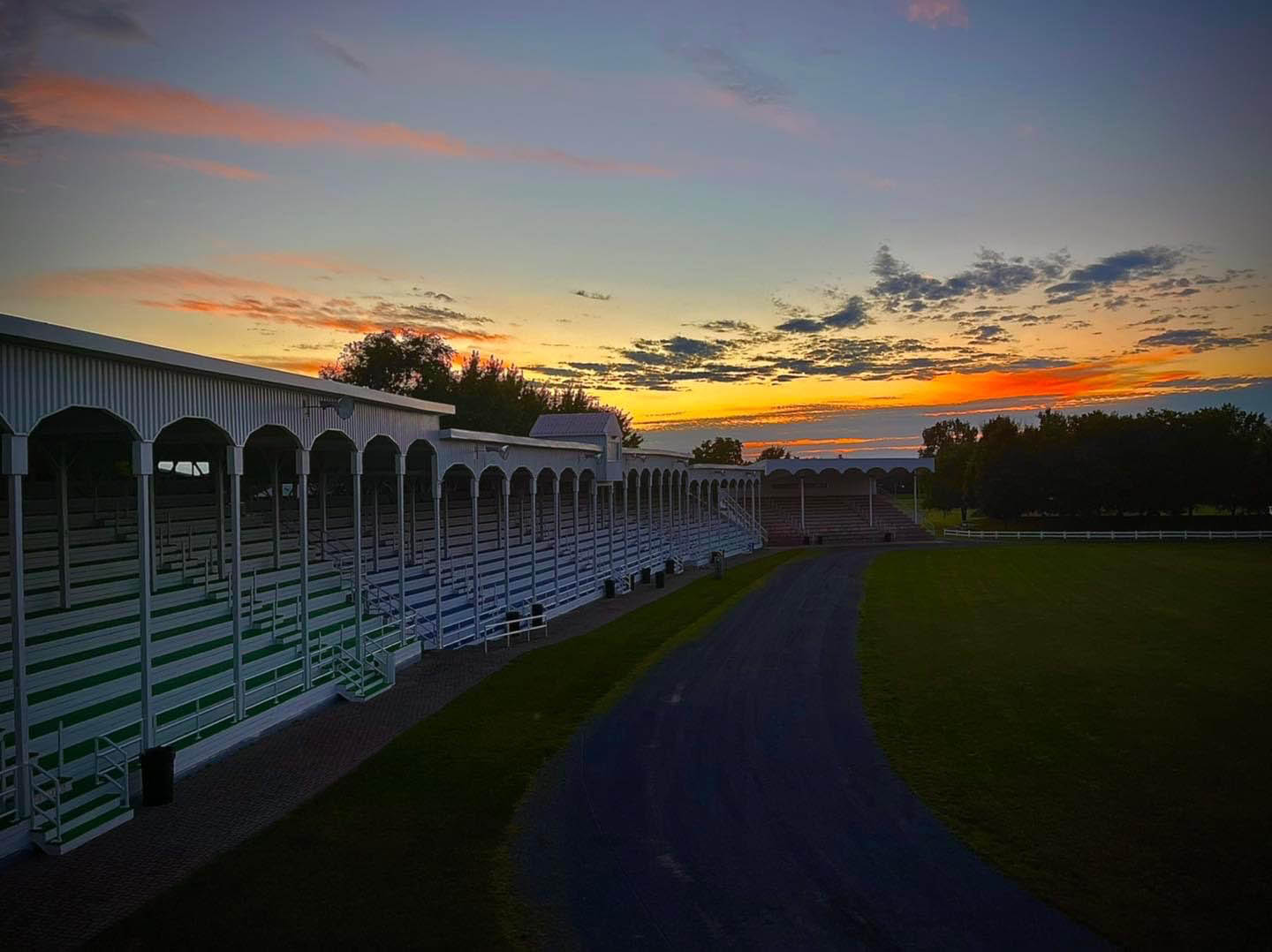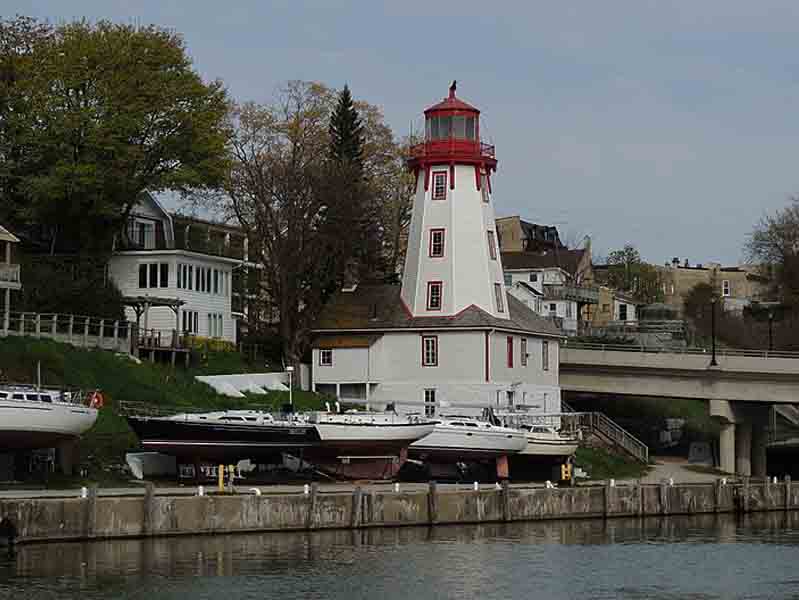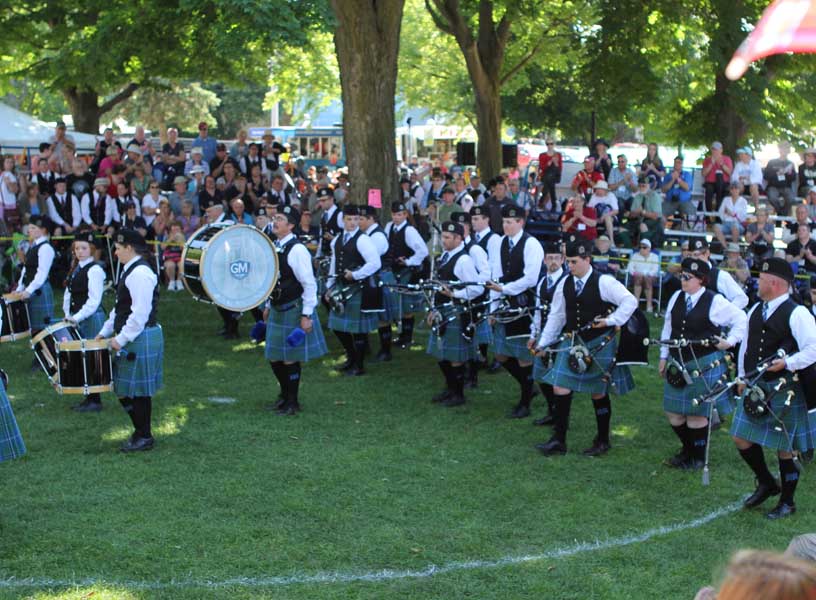A slippery slope

According to our site traffic stats, markedly fewer readers worldwide seemed to pay attention to or care about the news that the Kincardine Scottish Festival tried to go it alone with an independently-run, non-association sanctioned band competition.
It would be wise for everyone to be concerned.
We say “tried to go it alone” because the Grade 2 bands invited to compete at the event seem to have banded together for a quasi-boycott, in apparent solidarity in support of their associations, which no doubt fear that acceptance of such a thing could inspire other competitions to pull away from sanctioning and run their own contests.
Short-term, that’s good to see. Working together by getting behind the association system of ensuring and upholding organizational, grading and judging standards makes sense.
But in the long term, the threat of non-sanctioned contests is not going away.
And why would it? The piping and drumming world has been trotting out the same esoteric product for at least 75 years, steadfastly reluctant or outright refusing to change.
Even pipers and drummers recognize that solo competitions are of little or no interest to anyone but the competitors and those directly associated with them. Yet, almost every non-UK association insists that solo events are part of the deal in an all-or-nothing, take-it-or-leave-it attitude or policy.
Solo events keep getting pushed further and further away from the main action as a superfluous, arcane circus that no one else understands.
The problem is that the financial model of associations depends on entry fees for revenue. The more events, the more money comes in to sustain an increasingly unsustainable product.
The UK has a completely different model. Rather than the international approach of solos in the morning and bands in the afternoon, the UK pretty much always separates solos and bands. There are pipe band competitions. There are solo competitions. Rarely are the two mixed. A Scottish Highland games will hold solo piping competitions and a guest pipe band or two as entertainment.
A Scottish Highland games might also opt to have a “minor” pipe band competition sanctioned by the RSPBA. With few exceptions, these events have no solo contests.
With declining interest in and attendance at competitions as we know them, associations worldwide need to come up with a different model – or, more accurately, models.
While the UK is equally stubborn regarding change, the above approach seems to work. They keep it relatively simple for Highland games.
With declining interest in and attendance at competitions as we know them, associations worldwide need to develop a different model – or, more accurately, models. Rather than taking a “you’ll be wanting the same again” attitude, governing bodies should develop an a la carte approach, and that starts by sitting down with events to listen to their concerns and needs, recognizing that they have a business to run, and appreciate that any business that sells the same product year after year, let alone decade after decade, is doomed to fail.
A quick solution: associations use the off-season for more indoor solo competitions. Make the outdoor events pipe bands only or, if there are solo events, make them marquee “championship” spectacles on stages with only the very best competing.
Replace threadbare MSRs and stamped-out medleys with lengthier almost-anything-goes performances designed to entertain people as much as test skills.
We need to get creative. That will take bold thinking and courageous action. Association members must therefore have to elect and appoint leaders with a mandate to try new things and, when they do, not get dumped on for failing to be perfect right out the gate.
Competing bands and soloists acting together to resist change might work well in the short term, but the issue is not simply going to evaporate. It’s up to us to create the products that will sustain not only Highland games but, quite possibly, our very existence.
A choice is looming: will this be a sunrise or a sunset?




Very well said. I think one of the most important points being, “Association members must therefore have to elect and appoint leaders with a mandate to try new things and, when they do, not get dumped on for failing to be perfect right out the gate.” This must be followed by Judges adjusting/expanding their thinking to new things.
Great article. Like the idea of more off-season solo competitions, which is close to none in the U.S.. Also, why did all the online contest suddenly disappear? It’s very expensive now days to compete as solos. The highland games should be reserved for band competitions. Very few people (sadly) watch the solos at the games. Also like the idea of more marquee “championship” on stages competitions for top players (maybe G2 and above). The associations do need more out-of-box thinking to make piping more exciting and more affordable!
I’m shocked. You think it is a good thing to get behind an association that has completely lost the confidence of its members, and that this is a positive short-term development. Sorry! No!
I wholeheartedly agree that we’re in need of a change, but I don’t think throwing out the traditional elements of the MSR and Medley is a good idea. They’re the foundation of the music.
The season should be looked at as a whole comprised of a variety of different styles of events. Have anything goes contests, a ceilidh band contest where the piper is to play at concert pitch with other folk musicians. Have musicians that don’t play pipes or drums judge. I think it’s funny that we don’t get together to listen to each other more often. Having a mini band anything goes contest would be amazing. Drummers will have to suggest something fun for themselves and pipers should attend.
These smaller events should be used to keep interest up and connect people who’s paths don’t cross as often as they may like.
I don’t think it’s a great idea to have entirely separate contests for band and solos for small to mid sized games. Smaller associations benefit from bands travelling to their games. Often the number of visiting bands swells the solo entries and offsets the judges fees. It’s much more exciting to place in a group of 15 than one of 6-8.
Maybe we could give up some prize or travel money to make sure the games are in good shape. Most associations are run by volunteers. Most games rely heavily on sponsorship to break even. It’s that or members get involved to come up with ways to keep this going if that’s what we want.
When I approached the Irish Pipe Band Association about running a invitational solo event in Ireland they went out of their way to accommodate. I was concerned I would get pushback but, it was just the opposite.
The piping community needs to understand that less people are getting involved and many who do are not interested in competing.
In many cases the Scottish Games and Feiseanna have pushed the piping events in some remote corner or eliminated them. We need more venues to expose our art.
Indeed, the sun may very well be setting on things pipes, drums and pipe bands related as the demographics of society change. For one, fewer ex-patriots in North America with a connection to the culture to support the games.
All options need to on the table, including one where the societies responsible for sanctioning and running the events seek outside funding so as to make their services more affordable, i.e. less of a drain on the games themselves.
Solo competitions are important for development and the pipe bands certainly benefit from putting their younger members through them, but they may not provide a lot of value to the games themselves. To have the games support these events, it may fall to the competitors, the bands, the society and / or supportive outside parties to assist with the cost.
Some study and considerable thought on this is in order.